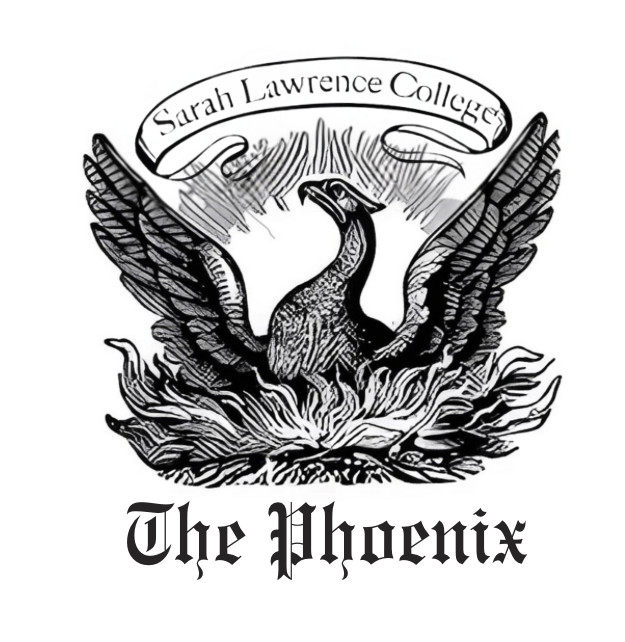Falstaff at the Opera di Firenze Review
Why would I want to leave a campus that I have grown to love so much? Should I stay and work in New York, and possibly get an internship? Is it worth leaving so much behind to study in a place I’ve never been before? These were just a few of the many questions I had last spring upon making up my mind if I wanted to study abroad in Florence, Italy this coming year. Looking back, these questions are laughable, looking at how enriching my experience has been here these past three months. As a music student in the birthplace of the Renaissance I have had so many opportunities to grow and be inspired through the arts that surround me on a daily basis. Whether it is in my theory and harmony class, where I am given a 30-minute lesson each week to go beyond what we are learning in class and compose or analyze pieces (much like conference work, which is irregular to have with music components in Bronxville), listening to a Maestro Batisti lecture on a whole range of topics in Music History from Verdi to Shakespeare to Victor Hugo, or in my private piano lessons at conservatory just outside Florence, every week I am continuing to deepen my musical education.
Deepening our education at Sarah Lawrence is about much more than what we learn in the classroom. It is what we learn from each other and how we apply what we learn inside the classroom to our everyday experiences outside of class. In this regard, the Florence program has been ideal in that it has given me (and the rest of the students on the program) an experience to see a concert nearly every other week at two great venues in Florence: 1. La Accademia Bartolomeo Cristofori (a fortepiano museum), and 2. L’Opera di Firenze (the premiere opera house in Florence). As a pianist, the former has led me into this world of a more intimate recital setting with some of the greatest pianists of my generation performing sonatas on period fortepianos. La Accademia’s counterpart is the opera house, led by the great conductor Zubin Mehta. If I did not completely comprehend the quality of music I had been seeing in this city watching pianist Jin Ju flawlessly play one of Schubert’s last piano sonatas, by the time we saw Verdi’s final masterpiece, the opera Falstaff, I knew that only in Florence, and only at Sarah Lawrence, would I be treated to such high-quality performances that are understood to be part of my whole education.
The following is a critique of the production of Falstaff at the Opera di Firenze as was assigned for Music History by Professor Alberto Batisti.
From Dr. Caius’ opening cries of “Falstaff! Sir John Falstaff!” to the momentous final fugue, L’Opera di Firenze’s production this past week of Falstaff was glorious, and showed the world, as represented by the protagonist, what an outstanding and momentous figure Verdi is in the opera repertoire.
Playing the role of Falstaff, Ambrogio Maestri filled the theatre with his voice and presence while making the audience feel empathetic towards him, laugh at him, and laugh with him. The brief hints of an aria Verdi gives to Falstaff were sung as if it were one of his earlier dramatic operas, with a full range of emotion. The orchestra, led by Director Zubin Mehta was masterfully led as an equal for Maestri’s booming voice.
Opposite Falstaff was the young romantic Fenton, played by Yijie Shi, who represents whom Falstaff might have been in his youth, as a more passionate tenor in the operas of Verdi written 40 years previously (e.g. La Traviata, Il Travatore, Rigoletto). Likewise, Ford, sung by Roberto De Candia, was elegant and heroic, yet no match to Maestri or Mehta’s orchestra.
Directed by Maestro Luca Ronconi, the first two acts were very simple, with white canvases and various rolling steampunk carriages to move characters on and off the stage, which at times was slightly awkward, didn’t add nor take away from magnitude of the of music.
It was in the third act that the direction really shone, highlighting the Shakespearean emphasis on the mystic world. After the second act’s comedic chaos ensued, a smooth transition into the dream-sequence that is the third act changed the atmosphere into something much more dramatic and dark, enabling us to look introspectively at what appears to be comedy. Ekaterina Sadovnikova’s Nannetta plays a fairy queen, with one of the only complete arias in the work, completely changing the tone of the opera to something that seems to be taken straight from A Midsummer’s Night Dream. Quickly, Falstaff wakes up from his dream and comes to realise the jokes that have been played on him. After a Mozartian comedic wedding and happy ending, “the play is over.” The cast sits on the edge of the stage for a grand finale declaring the whole world a joke, as Maestri points his finger at the audience. If the whole world is a joke, it is a great one, as tonight’s production so powerfully demonstrated.

